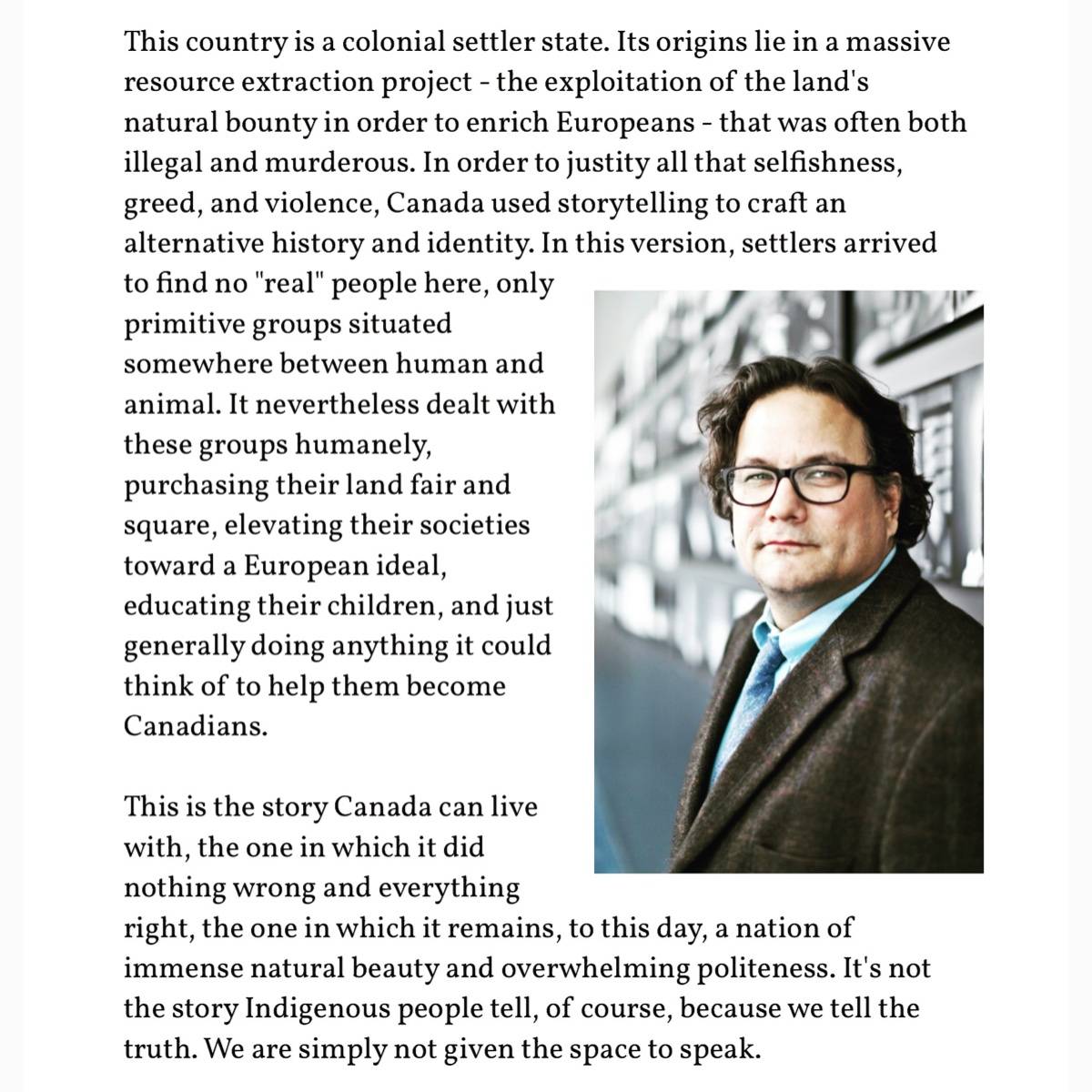

This is an excellent memoir by an author whose work I love on CBC radio: Jesse Wente shares his story as an Indigenous man growing up in Toronto with mixed racial and economic backgrounds, and his ongoing work in advocacy for Indigenous justice through his career as a film critic and broadcaster. Excellent insight into racism, diversity of Indigenous culture, and the legacy of residential schools.
#Booked2022 #Journalist
#Nonfiction2022 #Rebel
I don‘t think cultural appropriation is our [Indigenous] thing, but a colonizer‘s tool. I now focus on the positive by discussing narrative sovereignty, the idea that people, communities, and nations, should control their own story and the tools used to tell that story.

I skipped the book & breakfast thing yesterday because I took my dad out for his traditional birthday breakfast feast, but I was glad to dive back into it today with Jesse Wente‘s important and affecting memoir.

CBC arts columnist Jesse Wente is of mixed Anishinaabe & white heritage. In his memoir he shows what anti-Indigenous racism in Canada feels like. From war-whoop taunting when he was a kid, to racial profiling by police, to anonymous death threats when he has spoken up about Indigenous issues on air. Also, how his grandmother‘s experience at residential school shaped the lives of her descendants. Excellent #audiobook read by the author.

Above is a scan of Hal Niedzviecki‘s Appropriation Prize editorial in the May 2017 issue of Write magazine, an issue that showcased Indigenous authors. Wente was a weekly columnist for the CBC at that time & writes about the heated conversations and strong emotions that were a fallout from this article. I remember that time vividly; it still has ramifications in the CanLit scene, and rightly so.

The Na‘vis‘ only chance at defending themselves & their way of life comes in the form of a white man who uses technology to remotely operate a lab-grown Na‘vi body. He is literally wearing Indigeneity as a costume. This revolting form of “going native” climaxes in the usual way, with the white saviour out-Na‘viing the Na‘vi. He taps into their ancient spirituality in a way none of the Na‘vi seemingly can & uses the planet‘s energy to save the day.

I‘ve met people whose view of the world was so shaped by [Hollywood] misinformation that they believed all Indians were dead, that we‘d gone extinct. I‘ve met others who refused to believe I was Indigenous because I didn‘t have long hair.

I watched the documentary Reel Injun yesterday on account of film critic Jesse Wente‘s memoir. It‘s about the history of Indigenous representation in Hollywood and it‘s outstanding. I highly recommend it.

Storytelling is one of the key methods used by colonizers to explain and obscure their lawless treatment of the lands and peoples over which they claim dominion. But storytelling is also one of our best weapons in the fight to reclaim our rightful place.

Tokenism is a byproduct of dehumanization. It‘s hard to tokenize someone you see as fully human, someone whose ideas and work you respect.
In my experience, no matter how well disguised the tokenization, that realization always comes eventually, and it‘s never been fun when it arrives. At Toronto International Film Festival it took years, and it ultimately ruined the job of my dreams.

Listened to this driving to pick up my boys for thanksgiving and their Reading Week. I loved this book! I love JW‘s voice and hearing his story. I am encouraged by the message in this book that more Canadians are seeking information and education on Indigenous lives and truths. I hope others choose to read this book too.

As today is the National Day for Truth and Reconciliation in Canada I made the decision to only purchase books or products that are created by/support Indigenous persons. In addition to the other reading I am doing to further my understanding, I purchased this to add to the queue.